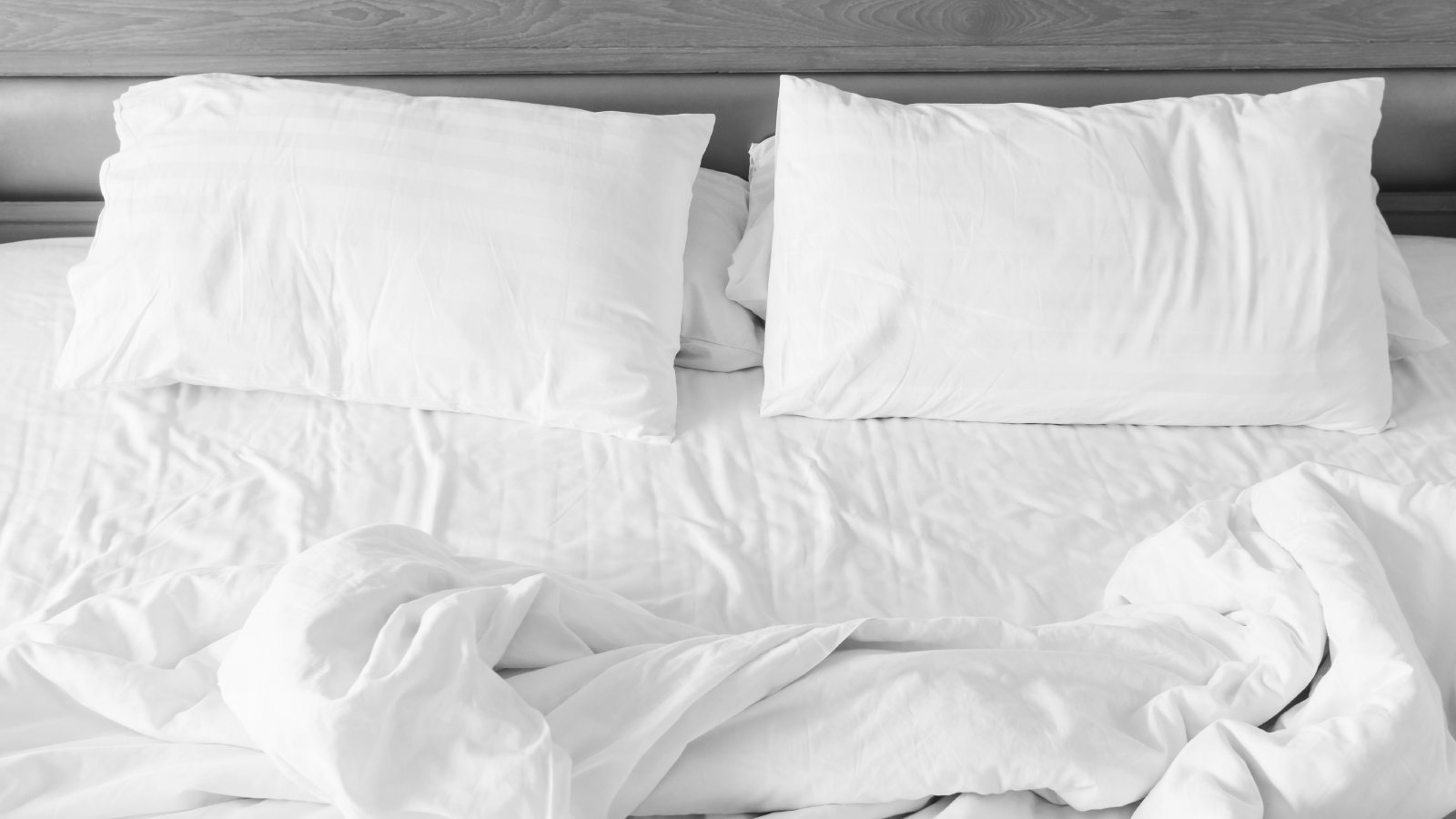How a women's sex drive changes throughout her life - plus how to boost a low libido
Our sex drive changes as we age - here's what to expect in your 30s, 40s, 50s and beyond


Sex drive. Two words that can spark fear into anyone. And that's because most of us worry over whether our sex drive is too high or too low, and question what really is normal.
But, it's important to know that, as with most things, your sex drive can fluctuate at different stages of your life. In your 20s, you may have had a collection of the best vibrators that you used regularly, but now find even your most trusty toy is left gathering dust in the drawer, and that is totally normal!
Understanding your sex drive doesn't have to be confusing, and discussing it with your partner doesn't have to be daunting. Here's everything you need to know about women's sex drive, how it changes, and what you can do if you feel your libido is low.
What does 'sex drive' actually mean?
"Sex drive, or libido, refers to a person’s desire to engage in sexual activity," says Oloni, sex and relationship expert at sexual wellness brand Lovehoney. "Low libido refers to a decreased desire relating to sex, while a high libido is an increase in desire for sex."
And here's the good news. "There is no ‘normal’ when it comes to how often you have sex," says Oloni. "Some people have sex (or feel like having sex) every day, others may have sex once a year or not at all. It all depends on what you prefer and your life circumstances."
What's more, a women's sex drive changes throughout her life and can be dependant on her circumstances.
How does a women's sex drive change throughout life?
During your 30s & 40s
Sign up to our free daily email for the latest royal and entertainment news, interesting opinion, expert advice on styling and beauty trends, and no-nonsense guides to the health and wellness questions you want answered.
"This time of life may be when your sex drive is strongest," says Oloni. "One study showed that women between 27 and 45 had more frequent and more intense sexual fantasies than younger or older women. They also had more sex and were more likely to have it sooner in a relationship."
During your 50s
"Around age 50, an ‘empty nest’ or less worry about getting pregnant might make some women more interested in sex," says Oloni. "But as you head toward menopause, oestrogen levels drop, which might cool your libido down a bit and lead to vaginal dryness. Hot flashes, anxiety, weight gain, and sleep problems also can make you feel less interested in sex. Ask your doctor about medicines, hormones, lubrication, and other treatments."

During your 60s and beyond
Post-menopause, many women find their sexual appetite increases. Others may find themselves in a sexless marriage with their partner, where it's more companionship than lust that keeps them together. There are no hard and fast rules when it comes to sex in later life. Vaginal dryness may be an issue due to oestrogen levels dropping, which might slow your libido, but there are plenty of lubrication options on the market to help with this.
Why is my sex drive so high lately?
One week you might find sex is all you can think about, while the next it may barely cross your mind. This could be due to your menstrual cycle, one of the main things which cause a woman's sex drive to increase and seem higher than what they are used to.
"Sexual desire can fluctuate throughout the menstrual cycle and often peaks around the time of ovulation," says Oloni. "This is when testosterone levels are at their highest."
The amount of alcohol you drink can also make a big difference to your sex drive. "Alcohol consumption lowers inhibitions, which might increase libido in the short term," says Oloni. "However, alcohol dependency might decrease sexual arousal, performance, and satisfaction, too."
That's not all, if you love having an orgasm and try to have them regularly through masturbation, then you may be increasing your sex drive without realizing it.
"Having enjoyable sexual experiences, either with others or through masturbation, might also lead to an increased desire for sex," says Oloni.
The only time you need to worry about your sex drive is if it is dramatically affecting the rest of your life. "A revved-up sex drive becomes an issue only if it leads to problems with your sex life and your life outside of sex," says Oloni. "This is known as hypersexuality – compulsive sexual behavior – or sexual addiction." If you find this to be the case, sex therapy may be beneficial. Seek advice from a medical professional and ensure your therapist or counselor is fully-qualified.
Why is my sex drive so low right now?
It's OK for your sex drive to vary at different times, and sometimes feel lower than your normal. A low libido can be caused by a number of factors, such as medical conditions, hormone levels, medications, lifestyle changes, and relationship problems.
"Many new couples will go through an early period of having a lot of sex that slows down over time," Oloni says. "On the other hand, a busy life can leave some people too tired or preoccupied to even think about sex."
Unless you're worried about your sex drive or it's causing problems between you and your partner, Oloni adds that you do not need to seek professional help from your doctor or a sex therapist.
What to do when your libido is low
If you feel your libido is low compared to your normal and you'd like to get your sex drive back, here are Oloni's top tips:
1. Drink more water
"Not getting enough H2O could be destroying your urge to get it on. Lack of hydration causes headaches, and no one wants to have sex with a throbbing head. On top of that, lack of hydration can cause vaginal dryness, which can lead to pain during sex. If you're just not feeling it, try sipping on an extra glass of water throughout the day and see if it does the trick."
2. Avoid salty foods
"We all love pizza, but if you're not giving yourself a balanced diet, your sex drive may be suffering a big blow. Fried and salty foods can make you bloated, and if you've ever had a plate of fries, you'll know that sex is often the last thing you want."
3. Exercise more
"Getting the blood pumping in your at-home workouts can help you get the blood pumping in the bedroom. A lack of exercise can greatly decrease your desire to have sex." When you're feeling good, you're likely to be more interested in sex.
4. Get your thyroid checked
"If you have a thyroid disease or abnormal thyroid levels, that can take a major toll on your sex drive, according to several studies. Hypothyroidism can affect your metabolism, which in turn slows down your sexual hormone production. It's important to have your thyroid levels tested when you go to the doctor, especially if you were assigned female at birth, to see if this might be the culprit."
5. Consider your mental health
"When your mental health is not in order, you may not want to do much of anything, let alone have sex. If you've been experiencing symptoms of depression or any other mental illness, this can be taking a toll on your desire to have sex." Open up to your partner about how you are feeling and seek advice from a mental health professional or your doctor if you are experiencing symptoms of mental illness.
Faye M Smith is an award-winning journalist with over 20 years experience in the magazine industry. Her continued work in the area of natural health won her the coveted title of the Health Food Manufacturers’ Association (HFMA) Journalist of the Year Award 2021. Currently Group Health Director across several magazines including woman&home, Woman, and Woman’s Own, Faye specialises in writing about women’s health, especially menopause, relationships and mental health.
